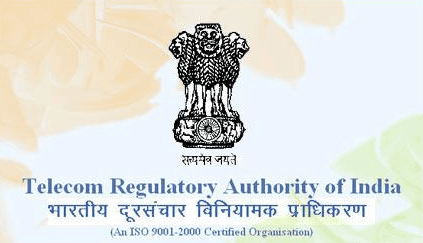In order to ensure smooth functioning of the Digital Addressable System (DAS), the Telecom Regulatory of India (TRAI) releases few do’s and don’ts for local cable operators (LCOs) and Multisystem Operators (MSO). The regulator believes that such factors will provide a better operational framework to them.

The dos and don’ts are categorized as three levels, considering its stakeholders. First, with regards to the subscribers and customers of digital addressable cable TV. Second, for LCOs providing cable TV servces through DAS and third, for MSOs issuing cable TV services through DAS.
Dos & Don’ts for MSOs & LCOs in respect of Subscribers/Customers of DAS:
DOs
- Representatives should carry a valid ID when visiting customers/subscribers premises.
- Ensure that the customer seeking cable TV connection through DAS is given a Customer Application Form (CAF)
- Handover a copy of the completed CAF along with the Manual of Practice (MOP) to the subscriber.
- Share a surrender application form with customer on request.
- Explain the T&C for providing STB to the customer along with tariff options.
- Ensure that all details are explained to the customers in detail.
- Provide with a bill and payment receipt to every subscriber.
- Send acknowledgement of receipt of payment electronically to the subscriber.
- Ensure that the subscriber is informed about his current status of his account.
- Reduce subscription charges if any channel is subscribed to be a subscriber becomes unavailable on the network of the MSO.
- Publish & prominently display the toll-free consumer care number and contact number of the Nodal Officer for redressal of consumer grievances.
- Set up a web-based complaint handling/monitoring system.
- Conduct periodic consumer awareness programmes about Quality of Service (QoS) Regulation provisions for subscribers.
DON’Ts
- Activate STB before entering the details of customer and his choice of channels.
- Discontinue any channel to a subscriber, if the subscriber paid subscription amount for that channel in advance and that channel is available on your platform.
(B) Dos & Don’ts for LCOs providing cable TV services through DAS
DOs
- Register with Head Post Office before offering cable TV services.
- Renew registration with Head Post Office every year.
- Enter into an agreement with the MSO whose signal you will carry.
- Keep a copy of agreement with you.
- Give the completed CAF to the MSO for processing and retain one with yourself.
- Provide complete details of payment made by each subscriber to your MSO within the agreed time frame.
- Give the respected surrender application form to the MSO for processing.
DON’Ts
- Transmit cable TV service without valid registration as this is illegal.
- Transmit cable TV signals to subscribers without proper written interconnection agreement with the MSO.
- Discontinue the transmission of cable signal without giving 21 days notice to the MSO, clearly specifying the reasons for the proposed discontinuation.
- Change the MSO of the subscriber, till the subscriber request so by filling a surrender application form for the existing MSO’s connection and a new CAF for the new MSO’s connection. The new STB should be activated only after entry of the details, as provided in new CAF, into the SMS of the new MSO.
(C) Dos & Don’ts for MSOs providing cable TV services through DAS
DOs
1. Register with the Ministry of Information & Broadcasting (MIB) as an MSO.
2. Enter into an agreement with LCO, if you are providing the cable TV service to subscribers through one or more LCOs.
3. Ensure a copy of the agreement is handed to the LCO within 15 days from date of signing and receipt is duly acknowledged.
4. Ensure that the T&C of the agreement conform to the TRAI regulations.
5. Ensure that the agreement explicitly mentions the date of coming into force and the date of expiry.
6. Ensure the agreement mentions the list of responsibilities of the MSO and the LCO, respectively, the revenue share agreed, and the procedure for uploading the consumer complaints, received by your linked LCOs, in the complaint handling/ monitoring system.
7. Ensure that the interconnection agreement contains explicit provisions for settlement of disputes.
8. Provide access to the relevant data in the Subscriber Management System (SMS) to all of your linked LCOs for the purposes of settlement of revenue shares in accordance with the agreement.
9. Educate your linked LCOs about the various schemes you are offering for procuring a set-top-box (STB) by a subscriber and also the channel(s)/ bouquet(s) available on your network.
10. Provide adequate number of spare STBs to all of your linked LCOs to meet the timelines set in the Quality of Service Regulations of TRAI, to avoid long disruptions in service to any subscriber due to malfunctioning STB.
11. Ensure that prior notice of 15 days is provided through local newspapers and through scrolls on TV Screen to inform subscribers who are likely to be affected due to the disconnection. Such notice should be published in two leading local newspapers of the State in which affected LCOs are providing the services, out of which one notice should be published in a newspaper in the local language.
12. Ensure that sufficient number of Customer Application Forms (CAFs) and Manual of Practice is available with your linked LCOs for distribution to the customers at the time of providing connection.
DON’Ts
1) Provide cable TV services without valid registration as MSO as this is illegal.
2) Provide cable TV signals to LCOs without a written interconnection agreement as this is illegal.
3) Give pre-activated STB to any LCO or to any customer.
4) Disconnect the signals of TV channels of your linked LCO(s) without giving 21 days notice to such LCO(s) and clearly specifying the reasons for disconnection.















